2014 has in many ways been a bit of a shit year, globally; and I suspect we won't really be sorry to see the back of it. Books, however, are friendly things, and I suspect a review of the year in books is fairly safe. Even more so when most of the ones I've read were rather good and I think you should read them, too.
At the beginning of the year I resolved to
read more women writers in 2014, and I am currently kicking myself for not having done something like that a long time ago; because as it turns out, reading 50% women writers is no hardship at all.
In fact,
I started the year on a bit of a feminist kick, and read the best named book of the lot:
The Girl Who Circumnavigated Fairyland in a Ship of Her Own Making by Catherynne M. Valente, a fairly straightforward fairytale-like story which I would recommend to anyone from 10 onwards. We need more books about plucky young girls fighting their way through a somewhat hostile Fairyland, helped along the way by a half-library Wyvern. I also got a hold of Tone Almhjell's
The Twistrose Key, which to my mind fits a similar pattern (and age bracket); though where Valente's allusions came wrapped in puns and language play, I found myself tracing Almhjell's influences where I do not think they were intended to shine through, and the language left a bit to be desired.
I have never made a secret of the fact that I, as a reader, combine inconstancy with a slightly obsessive, paranoid need to finish every book. I am sure you will therefore not judge me when I tell you that I had started Muriel Spark's
Memento Mori in 2012, when it ended up on a shelf after a particularly vigorous tidying (I blame whoever visited us that year). It might have stayed on the shelf with the many other books still in progress for yet another year had I not been casting about for women to read (not because there is anything wrong with the book; there are just too many of them for me and my fickle impulses). It is a stellar book on a group of old people and a prank caller telling them they will die. More fun than it sounds.
I also finished Umberto Eco's
Misreadings, which I had started in early 2013.
In this case I will plead special consideration, because this is a collection of short parodic and satiric pieces, and it feels wrong to read it all in one go. I recommend it wholeheartedly. You get publishers' letters of rejection for great classics, a future look at pop music as the only surviving fragment after a great disaster, an ancient Greek critique of Socrates in the tone of Adorno, and pieces written in the style of familiar pieces of literature, but with an inverted topic.
And while we are on the subject of books finally rescued from the shelf, I had also been reading Mervyn Peake's excellent
Titus Groan and Charles Dickens' (also very good)
Barnaby Rudge for
half a decade. And as I am always in the middle of a bi-annual cycle of rereading the Sherlock Holmes books, I finished Arthur Conan Doyle's
The Valley of Fear this past year; likewise, I picked
The Mystery of Edwin Drood up again, as we were writing a paper for the
Drood conference in London; and
The Scarlet Pimpernel crops up whenever I am feeling under the weather.
By March, however, I was teaching
a course on Science Fiction, and so for the next couple of months I read up on that genre. First, I was re-reading the texts I had set for the course: Philip K. Dick's
Do Androids Dream of Electric Sheep? (proto-cyberpunk with a dash of existential angst), Ursula Le Guin's
The Left Hand of Darkness (a supposedly gender-free society seen through the gendering eyes of a human), Douglas Adams'
The Hitchhiker's Guide to the Galaxy (parodic-satiric flirt with the future), Nick Harkaway's
The Gone-Away World (political (post-)apocalypse with a dash of ninjas and pirates) and Hannu Rajaniemi's
The Quantum Thief (post-humanity wrapped around 19th c. con master thievery).
But immersing myself in the history of science fiction unsurprisingly led me to an unusually science fiction heavy year, quite apart from my teaching texts. I had to read Nick Harkaway's new book,
Tigerman (political thriller, wrapped in comic books and sprinkled with apocalypse); and likewise,
The Fractal Prince by Hannu Rajaniemi (sequel to
Quantum Thief, dipped in
Arabian Nights -- though I've left the final book of the trilogy for 2015),
and Kurt Vonnegut's
The Sirens of Titan (which taught Douglas Adams what he knew of absurd futures) had been on my list for ages. With half an eye on my resolution to read women, I became increasingly aware of my
tendency to associate science fiction with straight, white men. This awareness led me to Samuel R. Delany's
Stars In My Pocket Like Grains Of Sand, which presents a world in which the female pronoun is used in the general, and the male only for those towards whom you feel sexual attraction. But I also made it a point to seek out science fiction written by women.
There are a number of excellent short stories, some of which are collected in James Tiptree, Jr.'s (yes, that is a woman)
10,000 Light-Years from Home. And I read Joanna Russ' feminist classic
The Female Man, in which four women from four parallel universes find they have four rather different ideas of what it means to be a woman (it is quite startling (depressing?) how a book written in 1975 highlights such a number of problems we still haven't managed to deal with).
But my main author this year must be said to be Ursula Le Guin. I finally sat down and read most of the Hainish Cycle:
Rocannon's World (in which Tolkien and Irish fairytales meet near lightspeed travel),
Planet of Exile and
City of Illusions (in which humans arrive at a strange foreign world, and a strange foreigner arrives on Earth),
The Word For World Is Forest (a science fictional commentary on the Vietnam War), and of course the utterly magnificent
The Dispossessed (in which a physicist from an anarchist moon meets his colleagues on a capitalist world). These books are all set at different times in the development of the League of Worlds, its destruction by the Shing, the defeat of the Shing and the creation of a new Ekumen of planets; but that story only shows itself in the background, rarely as a main focus -- Le Guin writes soft science fiction, and proudly: The books are primarily focused on the meeting of cultures.
In addition to the science fiction, I also read a selection of non-fiction works. Some of these were books I had been reading for a while (notably
The Music of the Primes by Marcus du Sautoy, which gives an overview of the history of the people attempting to find patterns in dispersal of prime numbers -- again, more fun than it sounds). Another, Matthew L. Jockers'
Macroanalysis: Digital Methods & Literary History, I read mainly to prepare for our conference talk. And while I read more war history this year than I have ever before, the
one I completed was Marc Bloch's
Strange Defeat, in which he (combining a historian's knowledge with the perspective of the eyewitness) details what he saw as the reasons for the French defeat in 1940.
But the main bulk of my non-fiction reading this year has been non-fiction written by or about women. There was Hannah Arendt's
Eichmann in Jerusalem, where she famously introduces the phrase "the banality of evil" as a way of describing Eichmann and some of his fellow Nazi officials. And Arika Okrent's lovely
In the Land of Invented Languages, which gives a loving introduction to the many invented languages and the people who made/use them (including amusing anecdotes about nutty 17th century scientists, visits to Esperanto gatherings and Klingon conventions). Judith Flanders'
The Invention of Murder: How the Victorians Revelled in Death and Detection and Created Modern Crime was a delightfully macabre (or delightful and macabre) overview of how murders and those who committed them (or were thought to commit them) caught the popular and artistic imagination of the Victorians.
Eighty Days by Matthew Goodman, was written by a man, but it tells the story of two impressive women: the early stunt reporter Nellie Bly and her counterpart Elisabeth Bisland, who both set off on attempts to beat Phileas Fogg's 80-day round-the-world record, in opposite directions, on the same day in 1888. There was also Laurie Penny's manifesto,
Unspeakable Things: Sex, Lies and Revolution, which while a little rambling in places says some very important things in a very direct way; and of course, there was Rebecca Solnit's essay collection,
Men Explain Things to Me, in which she point out some very disturbing patterns. I recommend them all. The books, not the patterns.
As a result of my impromptu decision to write a
Christmas story advent calendar, I ended up having to read quite a few of those, as well. The most tiresome was probably
The Life and Adventures of Santa Claus by L. Frank Baum, whereas both
The Nutcracker by E. T. A. Hoffmann and
Nikolai Gogol's The Night Before Christmas were very short and lively, and
J. R. R. Tolkien's Letters from Father Christmas were beautiful. There was also murder mysteries, in the shape of
The Santa Klaus Murder by Mavis Doriel Hay and
Hercule Poirot's Christmas by Agatha Christie.
This was the second Christie of the year. I read
Curtain: Poirot's Last Case for the first time this summer (I read all of Agatha Christie as a kid, but I knew what was coming at the end of that one, and I couldn't face it). On a cheerier note, I also found a lovely little murder mystery starring John Le Carré's greatest creation, George Smiley, in
A Murder of Quality (not, strangely, a spy story). And I read
The Daughter of Time by Josephine Tey, which is not about anybody's daughter (the title refers to the description of truth as the daughter of time), but a 1950s detective story investigating who really killed the Princes in the Tower (which you should read if you have been walking around thinking Richard III did it). In a vaguely related genre, there was also the Edwardian dandy spy thriller
The Vesuvius Club by Mark Gatiss, which was delightfully weird.
I read
Stoner by John Williams in order to discuss it at
Bokstavelig Talt, and I was rather disappointed. It was a perfectly well written book, but so utterly ingrained with the white, ablebodied man's perspective (a life ruined by a difficult woman and mean-spirited cripples, all manipulative to the extreme; cry me a river) I felt a little fed up. Thankfully, I also had a year in which I read Angela Carter's feminist retelling of fairytales, in
The Bloody Chamber, A. S. Byatt's retelling of the Norse myths in
Ragnarok (a part of Canongate's
Myths series), and not one but two Hilary Mantel books: the first volume of her Tudor trilogy,
Wolf Hall, and a short story collection named
The Assassination of Margaret Thatcher, which was not as shocking as it sounds.
The end of the year was quite relaxed, really. I had read
Cold Comfort Farm many years ago, before I read the genre it parodies. Having read a short story prequel among the Christmas stories, however, I decided it was time to pick it up again. It is still lovely. Perhaps especially when the world seems to be going in utterly the wrong direction, there is something comforting about this book, particularly if combined in appropriate doses with tea.
I ended the year with
A Chess Story by Stefan Zweig. It seemed appropriate, having spent so much of the preceding months watching and playing the game. It tells the story of a man who has kept himself sane (and then driven himself mad) by running through chess games and playing blind with himself while in Nazi captivity, who then runs into the chess world champion on a transatlantic voyage.
Along the way, there have been short stories and essays and articles galore. I have of course been dipping into books I have yet to finish, but I'll tell you about some of those next year, when I've finished them and therefore have the endings to make sense of them by (paranoid, remember?).
In the meantime, tell me about your books!


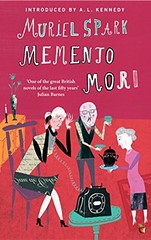

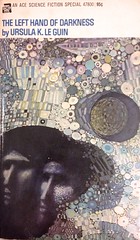

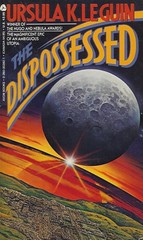
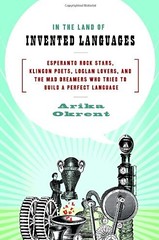

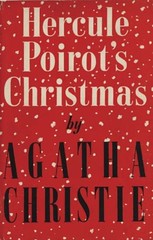
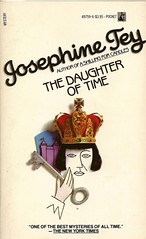
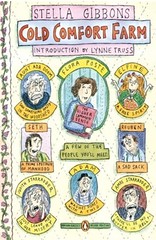
Comments